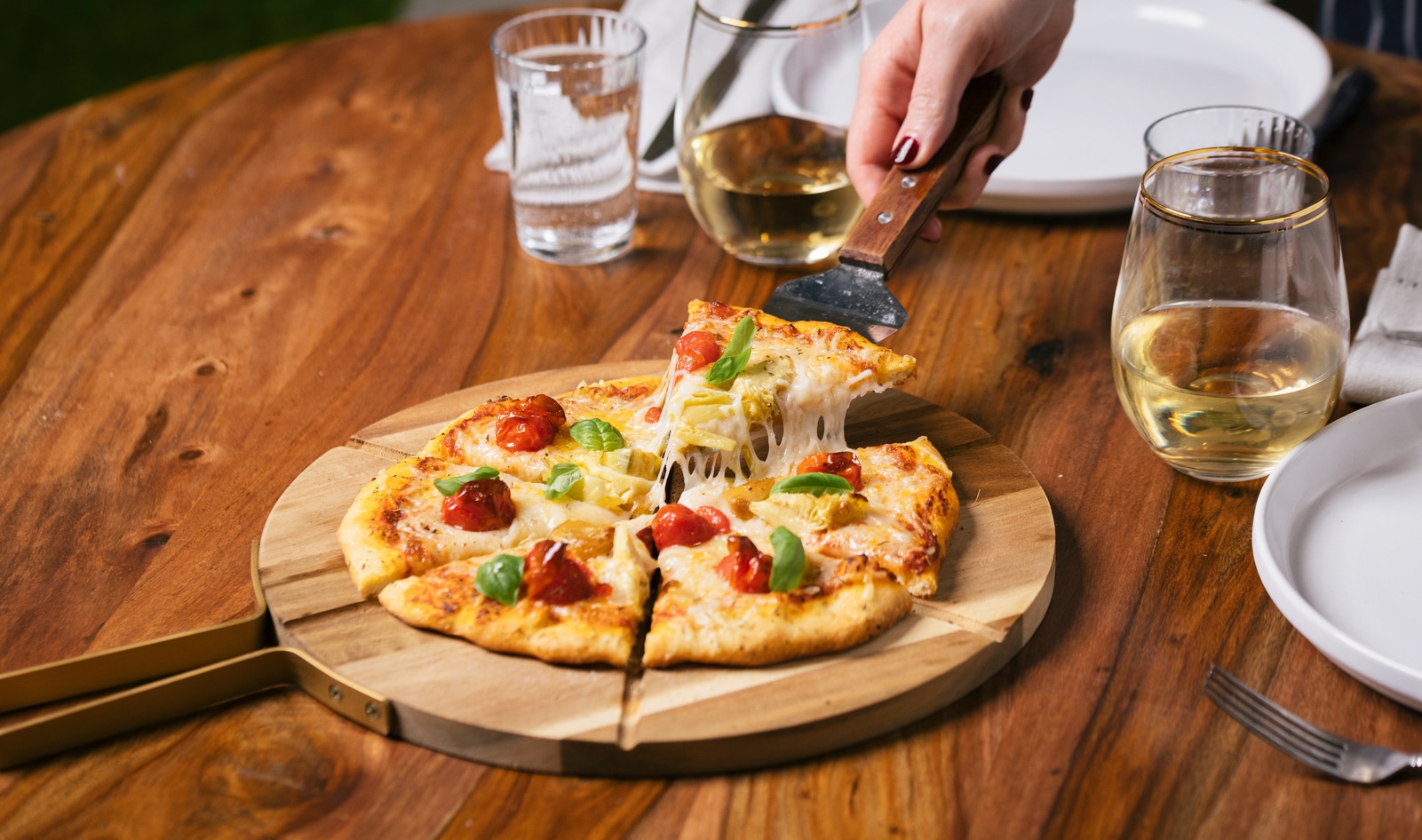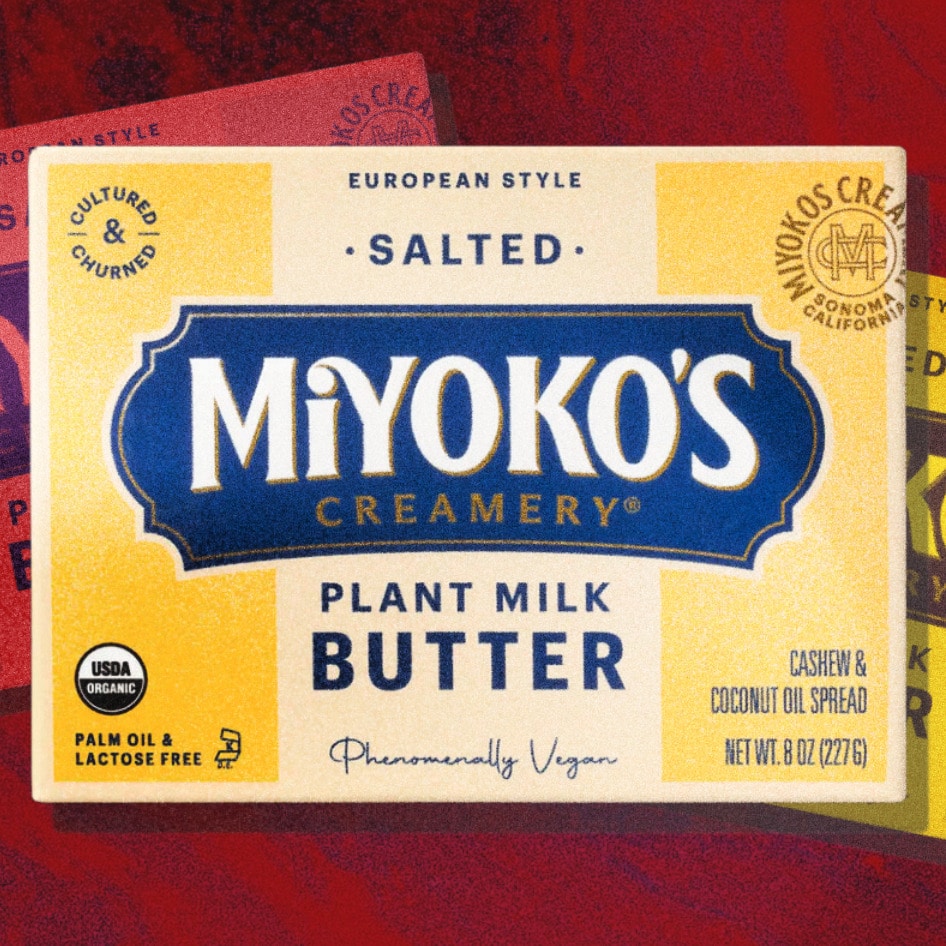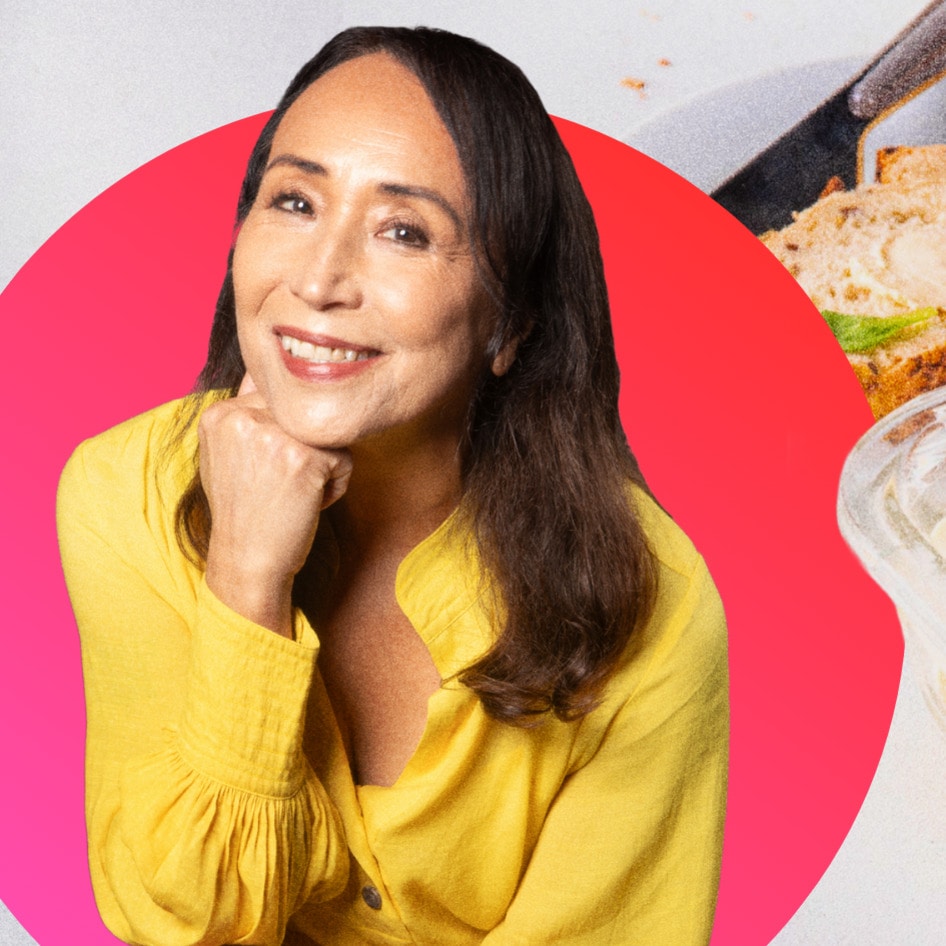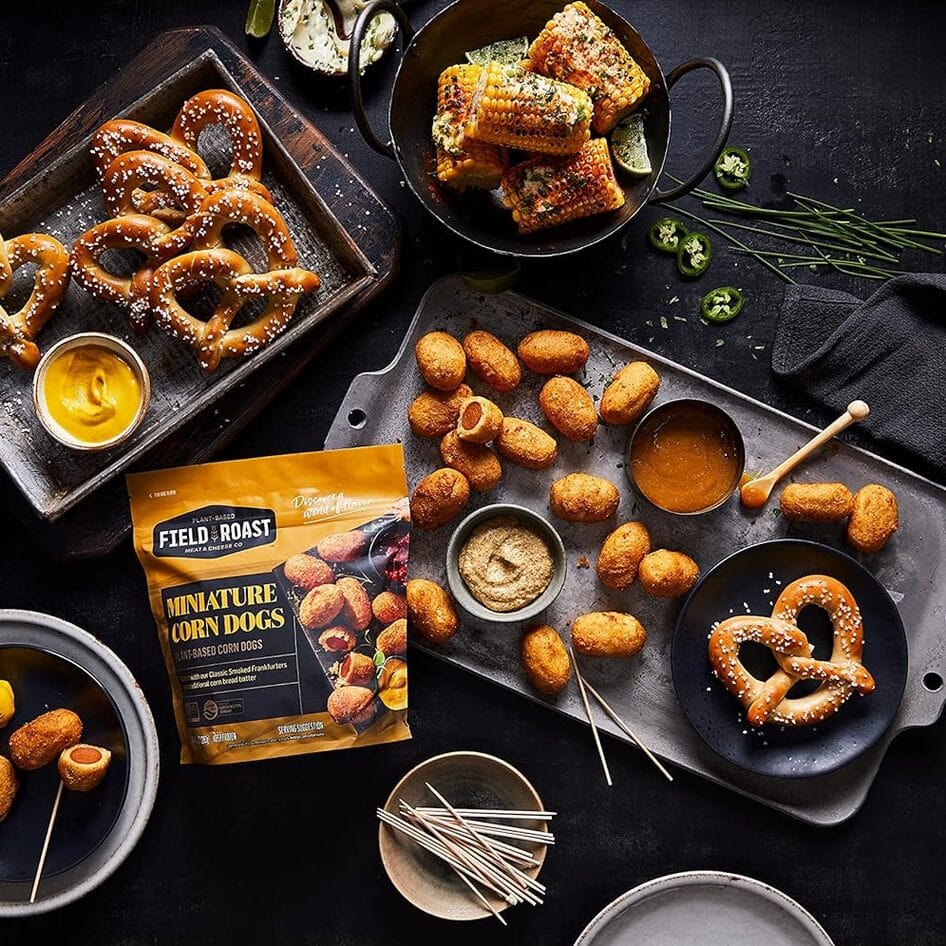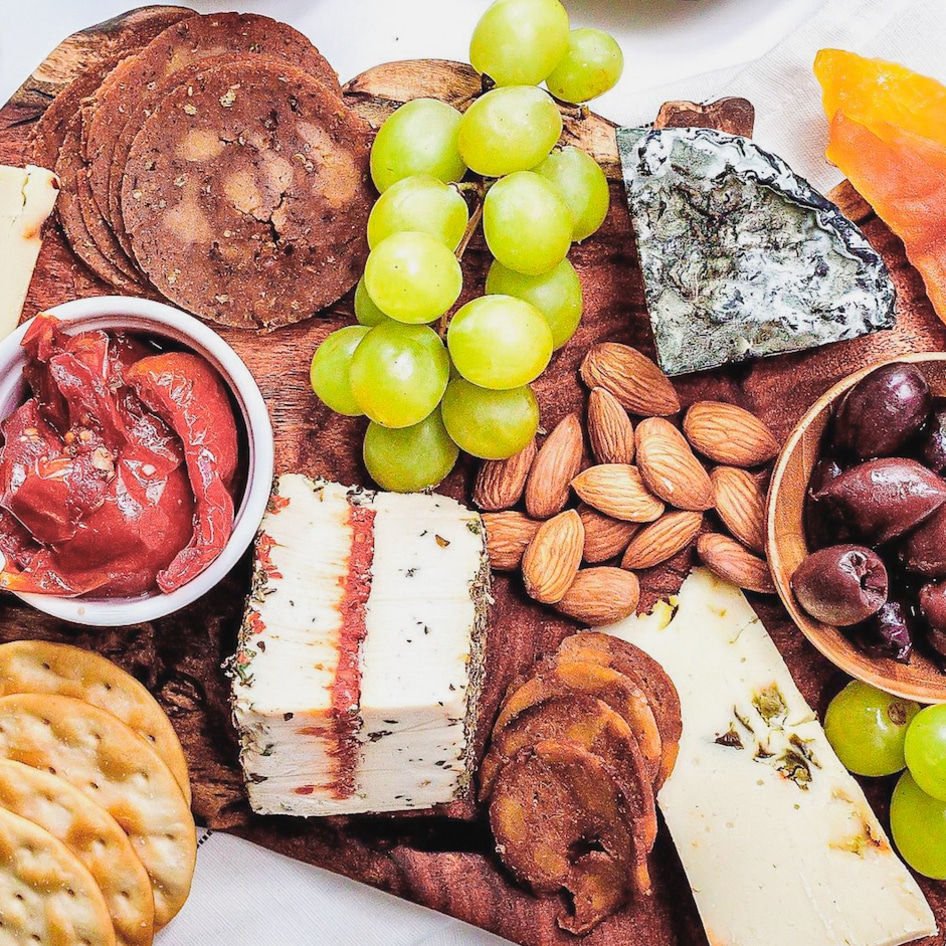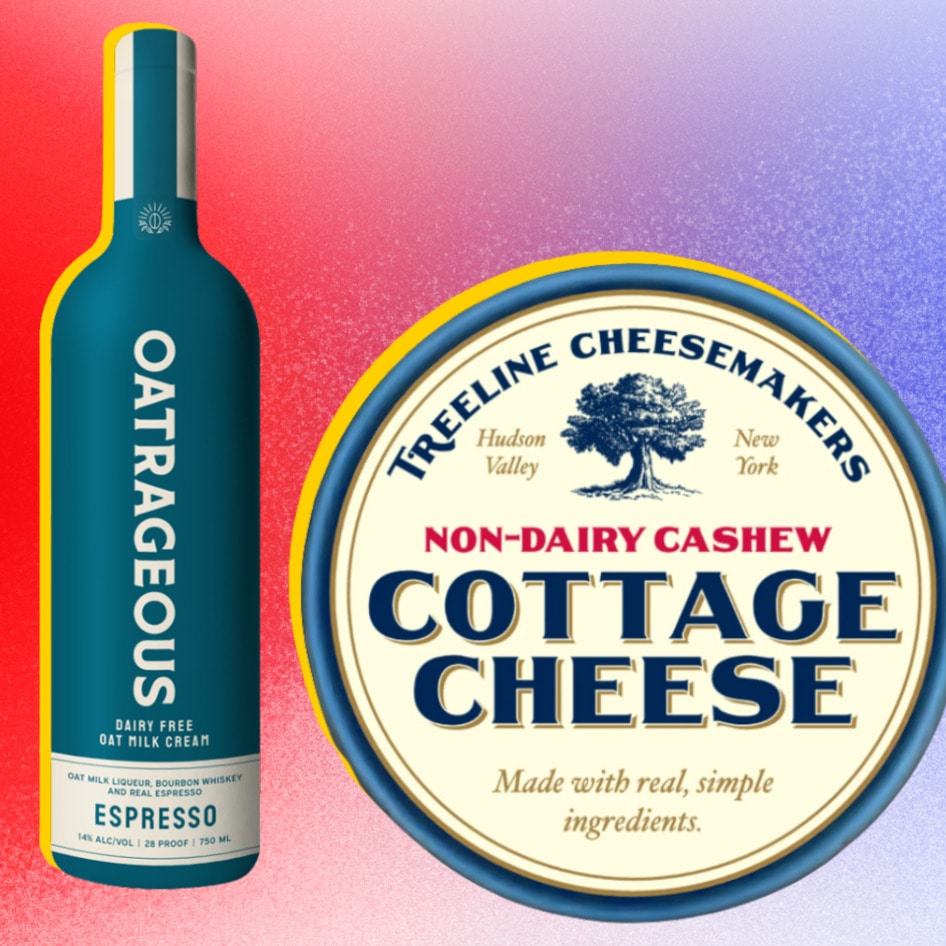Vegan cheese has come a long way in the last 15 years and in no small part thanks to Canadian company Daiya Foods. Founded in 2008, Daiya first came onto the food scene with its flagship cheddar and mozzarella style vegan cheese shreds that had one distinguishing feature: they actually melted.
In the last decade, Daiya has further revolutionized the vegan cheese category with the release of new formulations made with oats, chickpeas, and coconut cream; new formats such as slices and blocks; and new cheese styles such as feta, halloumi, and asiago.
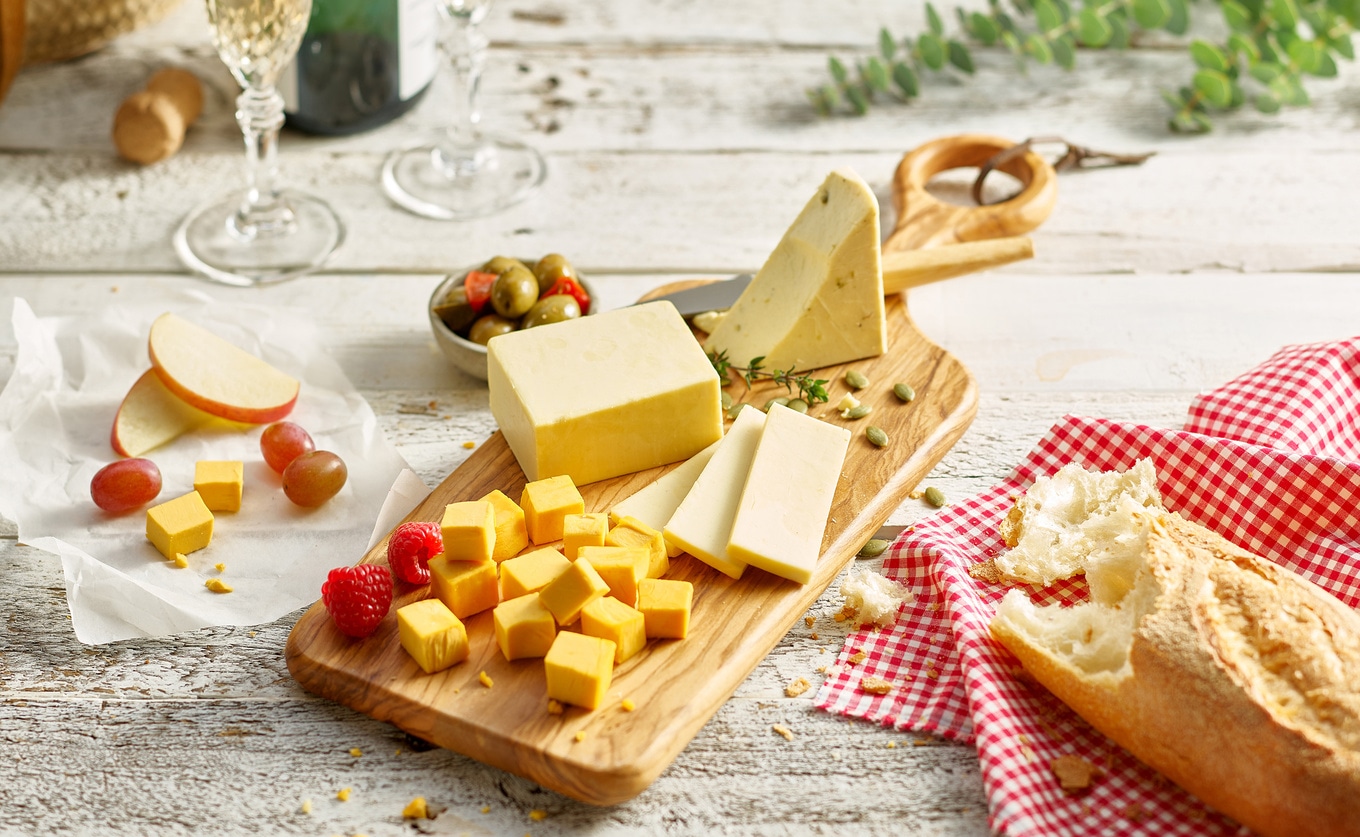 Daiya Foods
Daiya Foods
In 2023, Daiya is taking the next big step to push vegan cheese forward: a multi-million dollar investment into natural fermentation that will completely transform its products.
Developers have been working in stealth mode at a new fermentation facility positioned within Daiya’s 400,000-square-foot British Columbia production site. Here, they are using modern technologies combined with age-old cheesemaking techniques to develop exciting next-generation vegan cheese formulations that the public will taste soon.
To learn more about the move, we spoke with Daiya’s CEO Michael Watt on the floor at the recent Natural Products Expo West, the trade show where VegNews first gave the company a Best in Show award in 2009 for its groundbreaking meltable cheeses.
“This is a game-changing breakthrough for Daiya and plant-based cheese,” Watt told VegNews.
Daiya’s vegan cheese transformation
From dressings to frozen desserts, over the years, Daiya has offered products across multiple categories. However, in its next phase, the company is turning its focus solely on vegan cheese and cheese-related items such as pizzas, boxed mac and cheese, and flatbreads—an area Watt believes is Daiya’s strength.
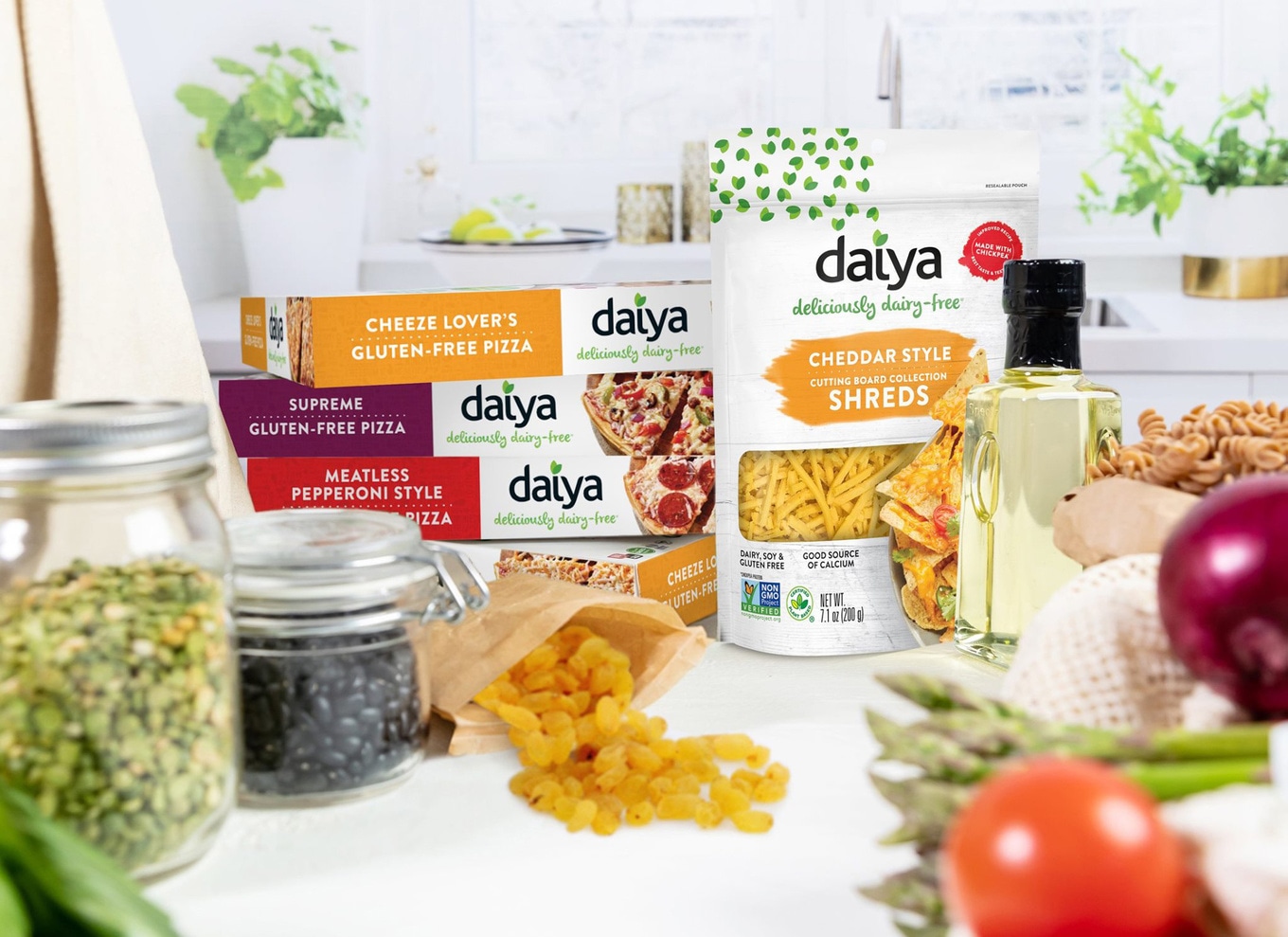 Daiya Foods
Daiya Foods
All of its cheesemaking has now been brought into its facility, where the company is currently working with Italian artisans to open a private pizzeria to aid in product development.
“Our vision is to surpass dairy so that it can be better for you and better for the planet,” Watt said. “We are literally reimagining the art of cheesemaking using traditional fermentation methods with plants.”
In the pursuit of this mission, Daiya’s cheeses have undergone nine different iterations in the last 15 years, with fermentation being the most accelerated improvement to date.
The new formulations are centered on pea protein and oats but also involve microbes, cultures, and enzymes along with a proprietary fermentation process that gives the vegan cheese the sought-after qualities of dairy.
On the floor at Expo West, VegNews editors were invited to a private tent to experience this innovation with a demonstration that involved several cheesy foods. First, the company presented grilled cheese sandwiches that compared Daiya’s new fermentation-powered formulation against both a leading competitor and its previous formula.
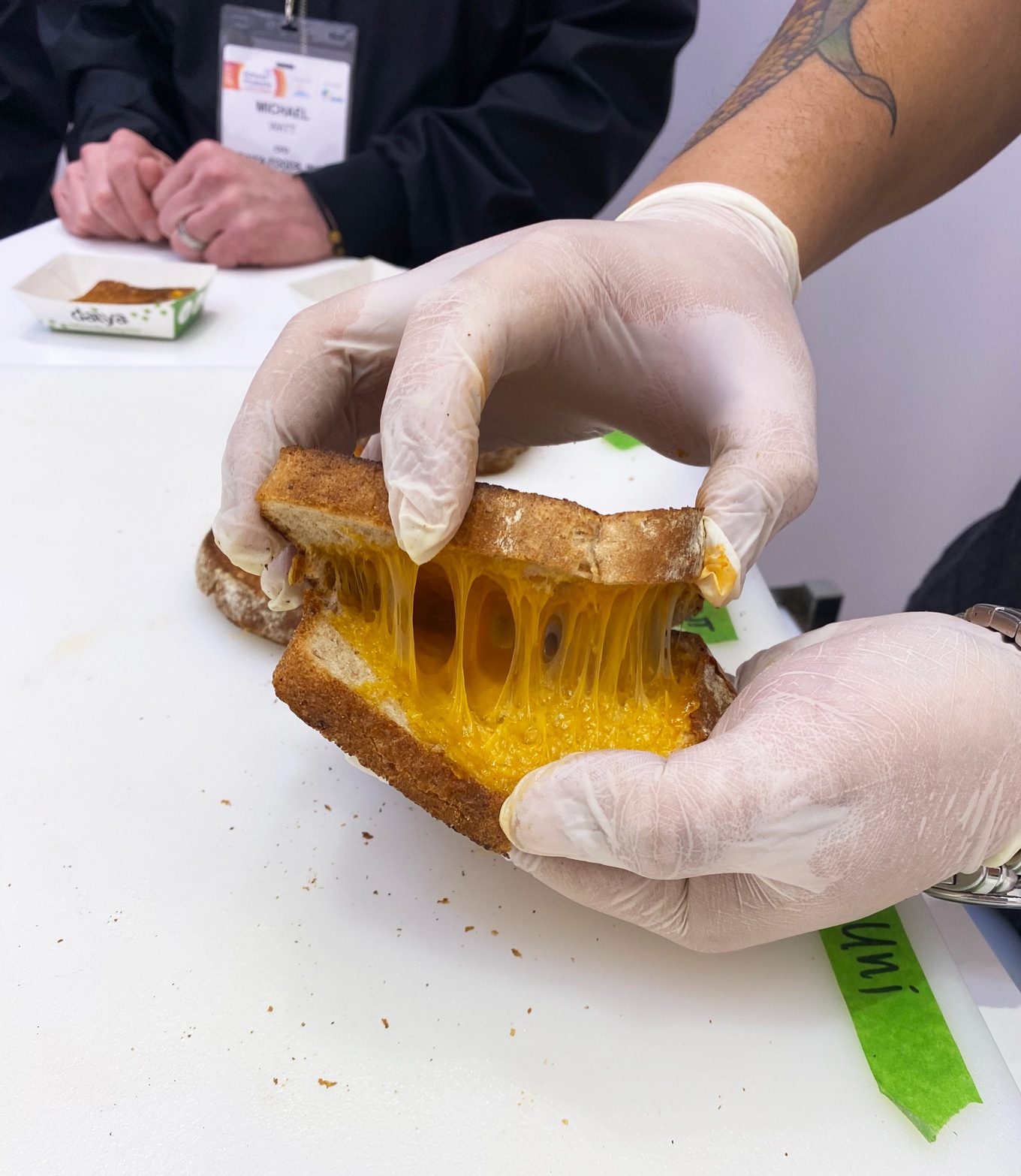 Jocelyn Martinez/VegNews
Jocelyn Martinez/VegNews
The verdict? The new Daiya cheese was visibly much meltier and with a slightly more dairy-forward flavor.
Next, two cheesy pizzas were brought into the tent, again showcasing the improved meltability of Daiya’s cheese against its leading competitor. This pizza format also showcased the new formulation’s browning abilities.
As was apparent from the cheesy sandwiches and pizzas, Daiya has heavily invested in an R&D team that Watt—who enthusiastically ate the melty vegan grilled cheese sandwich—says is “much larger than you would think.” Daiya is also working with strategic partners and advisors, including in the academic community, to illuminate any dark spots in its new phase of vegan cheese development.
“If we’re going to surpass dairy, we ultimately need to get close in taste and texture and develop the melt and stretch of the product,” Watt said.
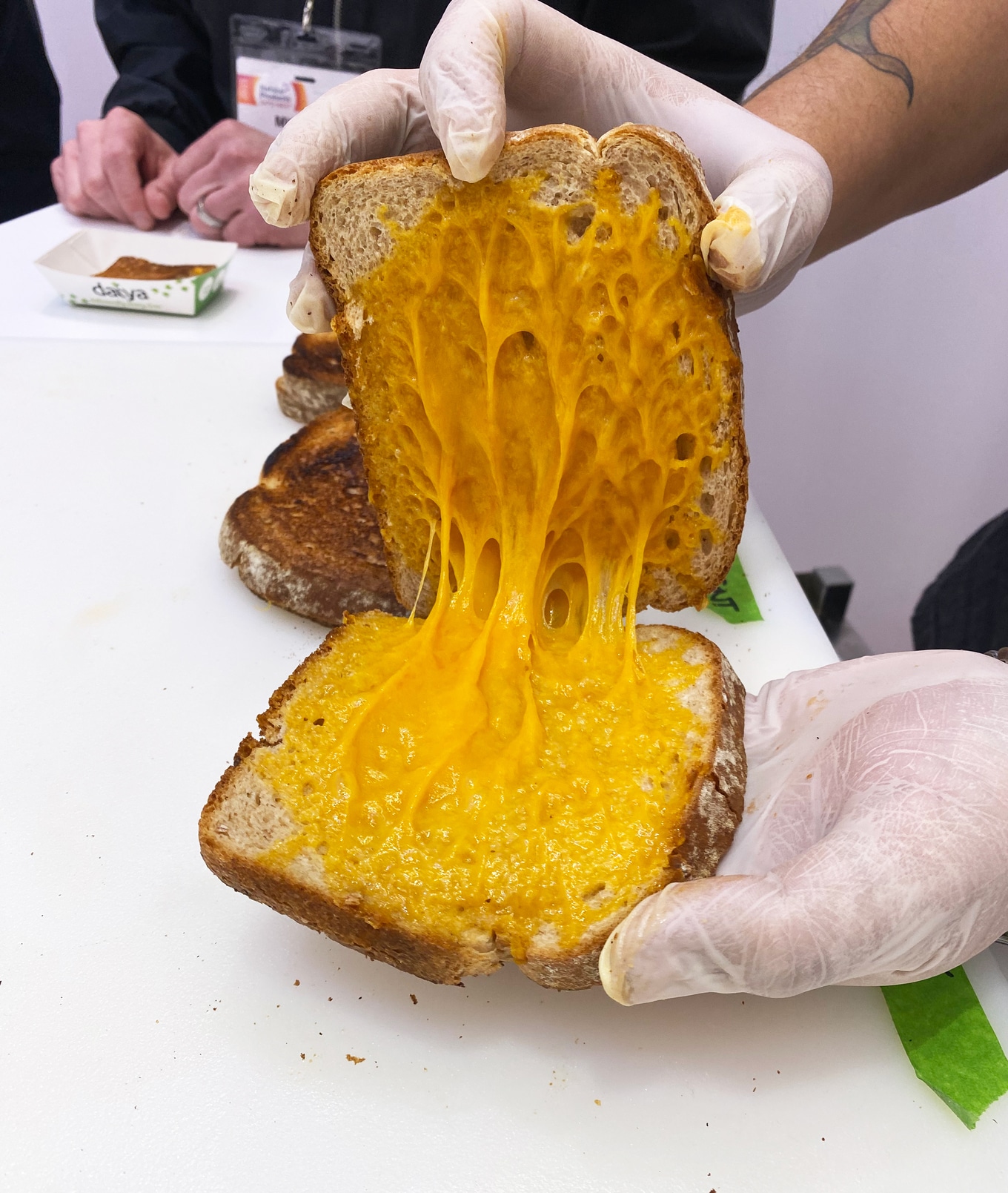 Jocelyn Martinez/VegNews
Jocelyn Martinez/VegNews
To quantify improvements, Daiya measures its cheese pull against dairy—and it is getting pretty close. Dairy cheese pulls at 200 to 250 millimeters and Daiya’s new formulations clock in at an impressive 180 millimeters.
Consumers want better vegan cheese
A new report published by trade organization Plant Based Foods Association together with data insights company 84.51˚ targeted the top 50 percent of the most engaged plant-based shoppers in Kroger’s 60 million household customer database.
The survey found that 73 percent of consumers agreed with this statement: “I wish there was a better plant-based cheese alternative that tasted like regular cheese, melted well, and didn’t have a grainy texture.”
Daiya is acutely aware that consumers are looking for improvements in the vegan cheese category and its move into fermentation has the potential to close these gaps. It’s also looking to gain new dairy-loving customers, and keep them.
“We are really focused on those dairy consumers,” Sarah Kozik, Daiya’s Director of Innovation, told VegNews. “They are the ones that have come into the plant-based cheese category over the last couple of years but half of them are dissatisfied with the experience.”
“In fact, when we look at what’s driving declines in plant-based cheese, it’s a lot of what we’re hearing in the news about plant-based meat: the experience just isn’t there, ” she said. “So, two-thirds of consumers that are leaking out of the category are those dairy buyers who came in to dabble and see if anything has changed or progressed.”
Kozik explains that the current experience of vegan cheese is indeed not yet at the level of dairy. “It’s missing those complex [buttery] dairy notes,” she says. “It doesn’t have the texture; that creamy mouthfeel that people are seeking and love in their dairy products. And if you cook with plant-based cheese, it doesn’t melt the same way—at the same time and same temperature as dairy.”
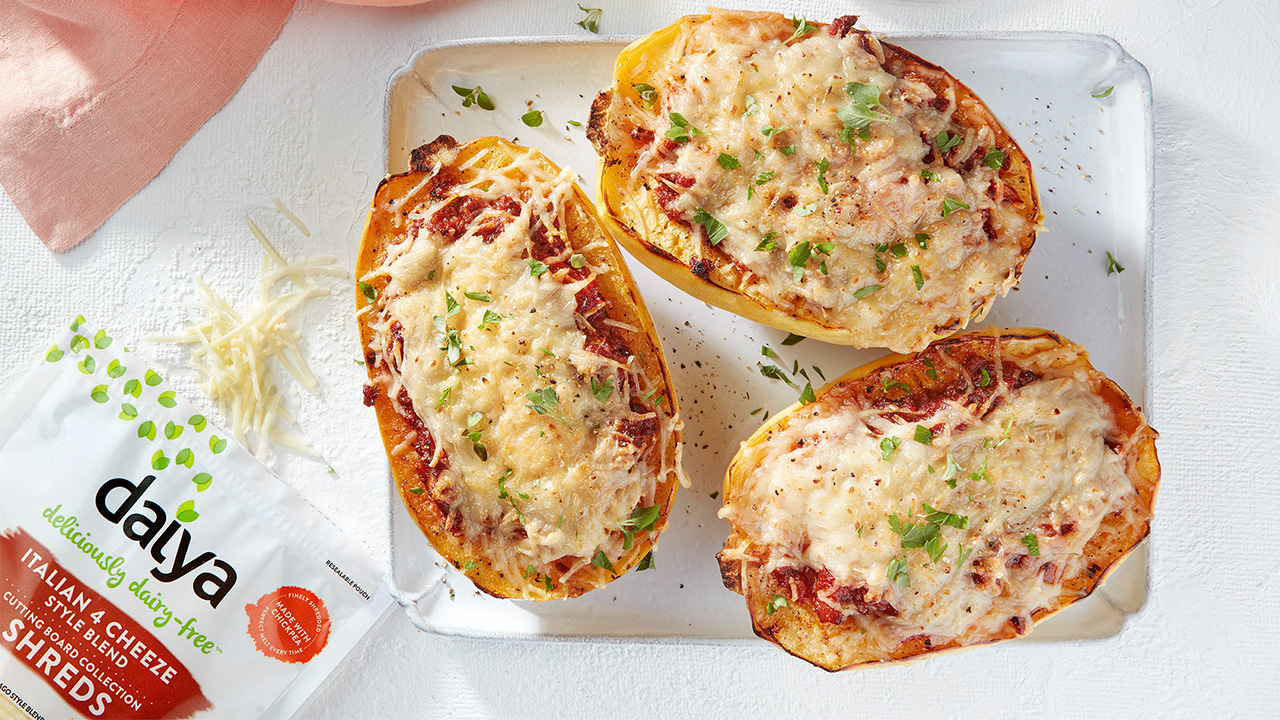
The new fermentation-powered formulations improve upon all of these factors, which are of utmost importance to Daiya’s foodservice partners.
One challenge the new formulas solve, Kozik explained, is that telltale floppy piece of unmelted vegan cheese on a burger. This happens because foodservice operators do not have the capacity to adjust the way they prepare and serve cheeseburgers, which are typically made by placing a cold piece of dairy cheese onto a hot patty that then melts when inside the wrapper.
When vegan cheese is brought to a similar melting point—like Daiya has done with its new formula—quick service food operators can deliver the same eating experience as conventional cheeseburgers with no modification to protocols.
“We’re really excited about the potential this can bring to consumers at home and in foodservice,” Kozik said.
The future of Daiya’s vegan cheese
These new cheese formulations will replace Daiya’s old recipes, in both foodservice and retail, and the company expects to make the transition by the end of the year. Despite its multi-million dollar investment into fermentation, the new vegan cheeses will come to market at price parity with dairy.
“We’re already developing the 2.0 and 3.0 versions,” Watt said. “We do think about closing the gap with dairy and then, surpassing it.”
And the future of Daiya is not limited to its past, which focused primarily on the most common cheeses such as mozzarella and cheddar shreds and slices. Its move into fermentation opens new avenues such as brie and other specialty cheeses.
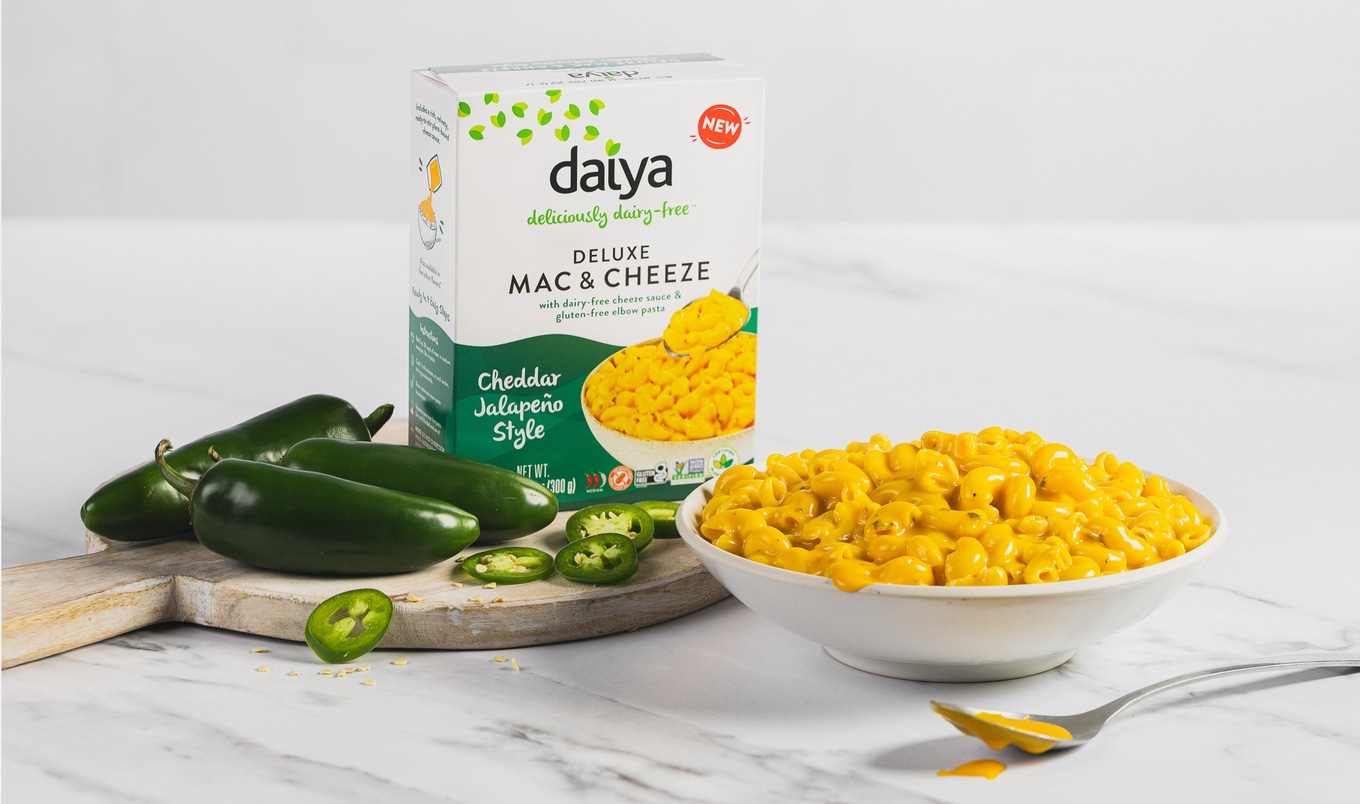 Daiya Foods
Daiya Foods
“This company is so committed to innovation, that the runway for cheese that you see on the dairy side, we’re looking at every aspect on the plant-based side of the category,” Watt said. “We are learning every day what this new process is unlocking for us.”
For the latest vegan news, read:
JUMP TO ... Latest News | Recipes | Guides | Health | Subscribe

